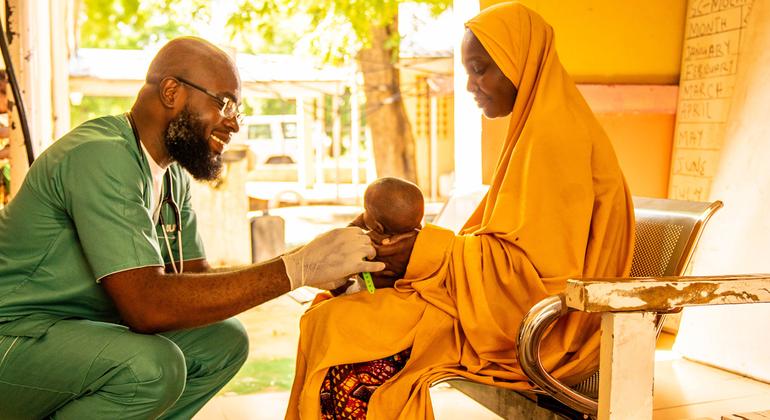Nigeria becomes first country in Africa to receive mpox vaccine: WHO


On August 14, 2024, the head of the World Health Organization (WHO) declared the outbreak of monkeypox, formerly smallpox, a public health emergency of international concern (PHEIC). Following its announcement, the head, Tedros Adhanom Ghebreyesus, said he Working with partners to facilitate equitable access to vaccines.
The US government has donated the Jynneos (MVA) vaccine to Nigeria and is expected to distribute it in five states in the country where the most mpox cases have been detected.
“We are pleased to receive this modest initial funding for the mpox vaccine, which is safe and effective.”, said Nigeria’s Minister of Health, Muhammad Ali Pate. “We will continue to strengthen surveillance and vigilance to prevent and control mpox.”
Vaccine management
The MVA vaccine will be administered to 5,000 people at highest risk of contracting the virus on a two-dose schedule. This includes “close contacts of mpox cases and frontline health workers, with provision for reactive vaccination in other states as needed,” according to the WHO regional office for Africa.
While waiting for the vaccine to be deployed, Nigeria’s National Agency for Food and Drug Administration and Control has approved the vaccine for emergency use.
“The provision of mpox vaccine to Nigeria is not only an important addition to the measures being taken to contain the virus and protect the health [but] It is also a clear demonstration of international solidarity in the face of a global public health emergency.Dr Matshidiso Moeti, WHO Regional Director for Africa, said.
Gaps in vaccine access
“There remain serious gaps in access to mpox vaccines” in Africa, the WHO Africa office said.
The organization is working with countries and manufacturers to increase access to needed vaccines.
Furthermore, WHO is working with partners including the United Nations Children’s Fund (UNICEF) and others to “allow for donations to be received from countries with existing stockpiles.”
The partners are also developing a “donation program” to ensure limited quantities of vaccines are used in areas where they are needed most.
The WHO Africa Office is supporting the Nigerian Government to improve “surveillance and contact tracing, laboratory capacity, risk communication and community engagement” as the country had 786 suspected cases of mpox and 39 confirmed cases as of 10 August 2024.
Health officials are also implementing measures to detect and diagnose cases early, as well as strengthening cross-border surveillance, especially at key entry points across the country.




